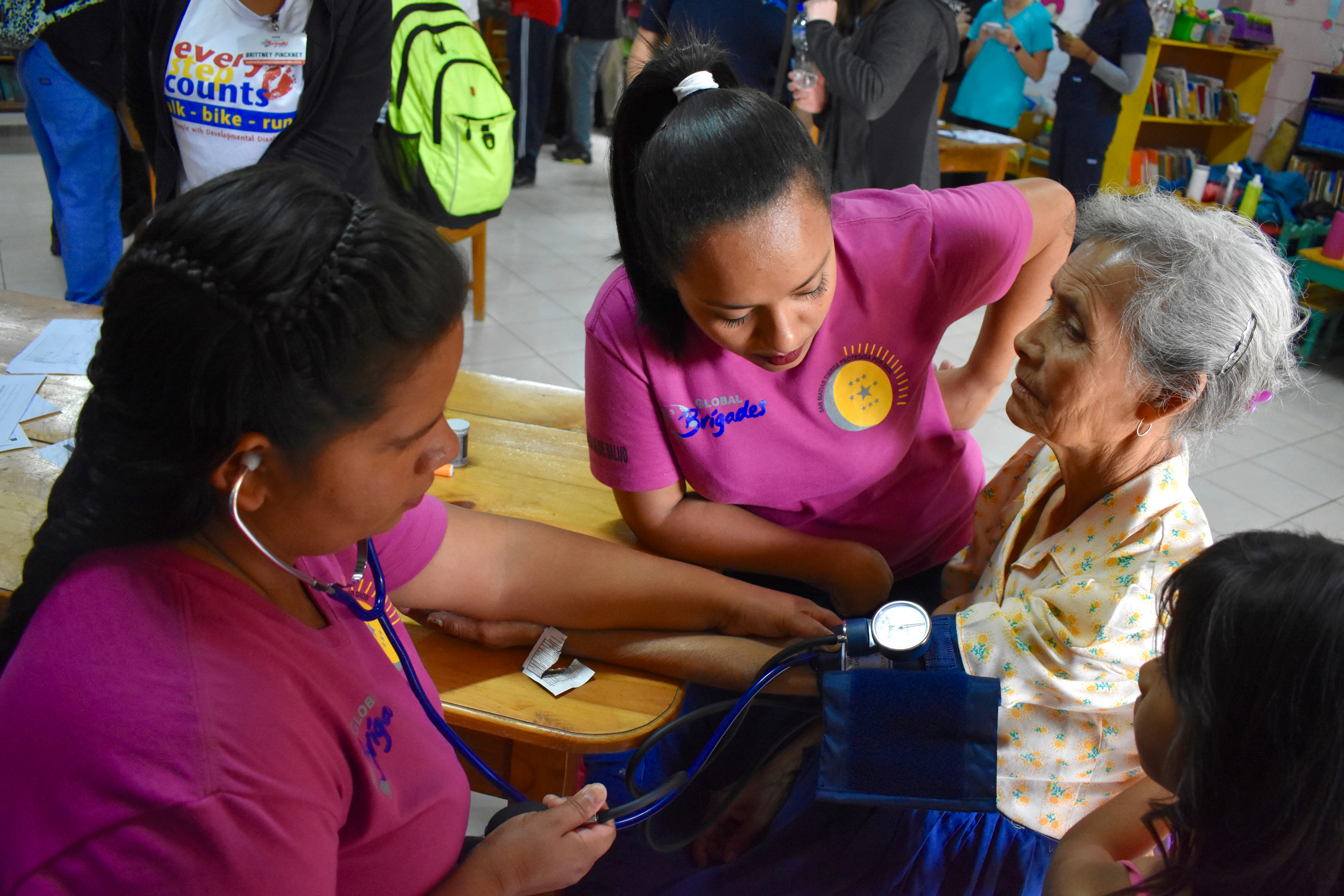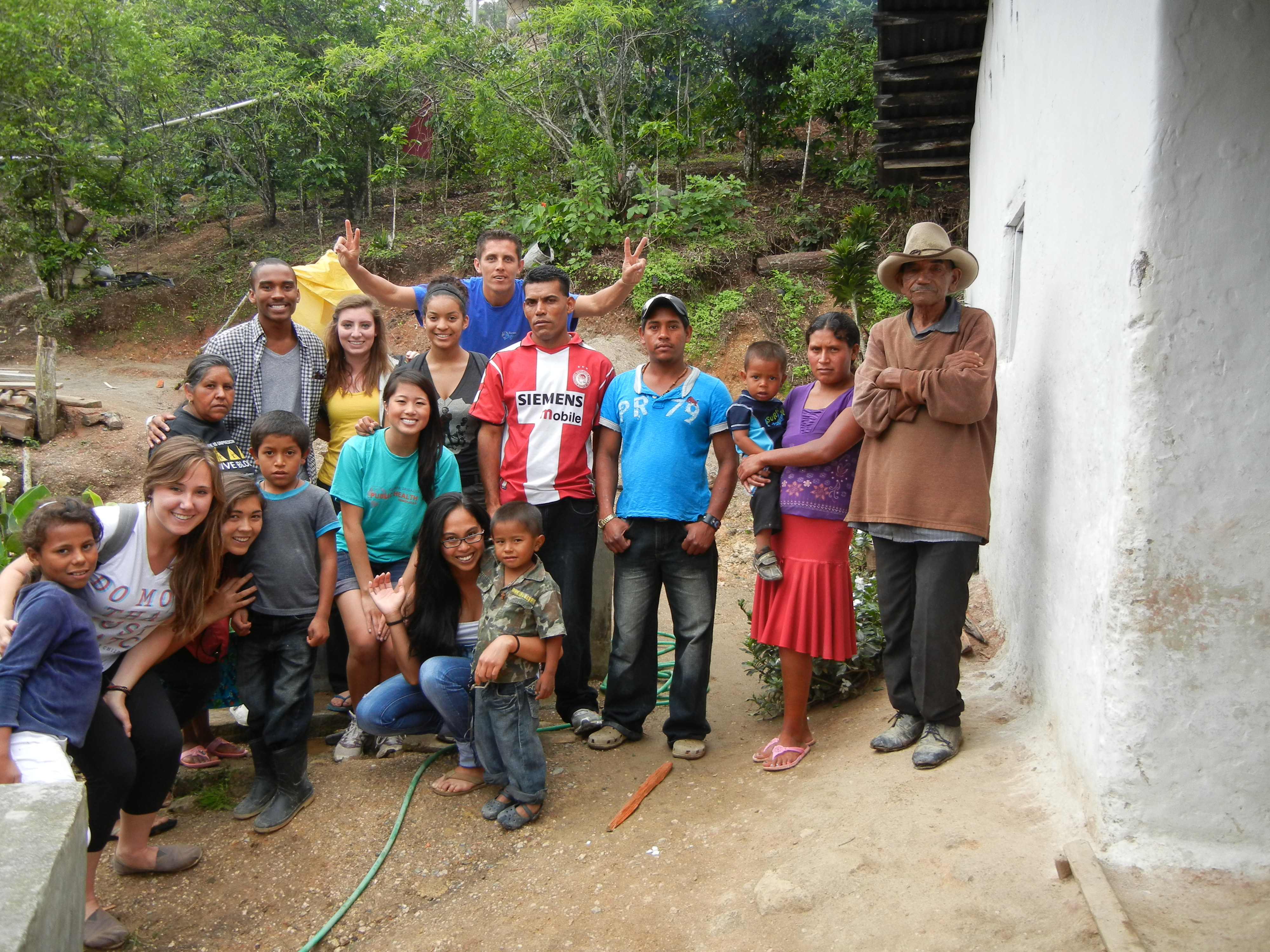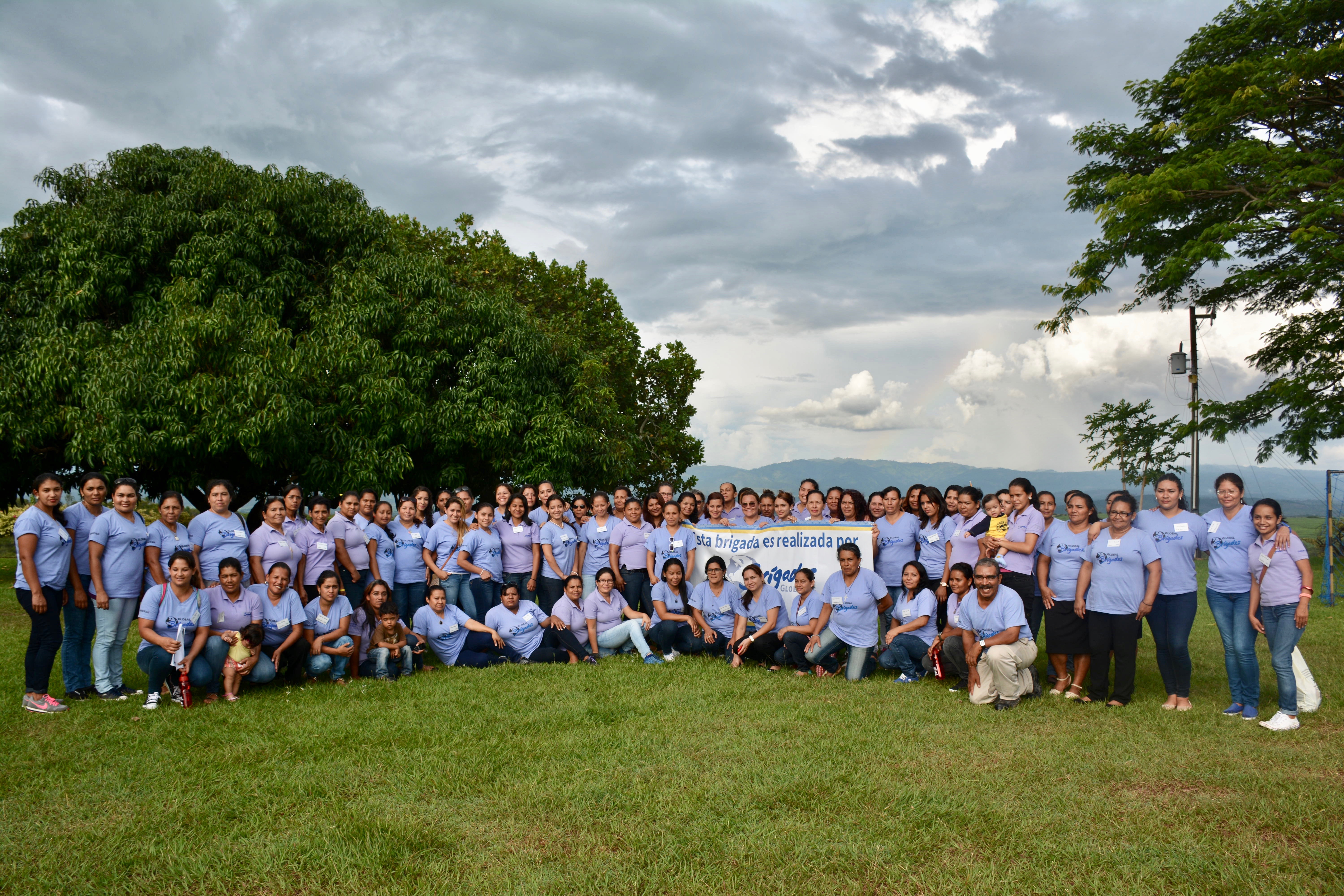One major barrier to accessible healthcare in the countries where we work is understaffed healthcare centers in rural communities. For example, while the CDC estimates physician population density to be .37 physicians per 1,000 population in Honduras, the majority of these health services are located in urban areas.
Community Health Workers (CHWs) are part of the solution to this problem, as community-based volunteers who dedicate their time to take care of the basic health and first aid needs of other members of their community. The mission of the Community Health Worker program is to empower community members to facilitate basic health services, particularly in resource-constrained communities.
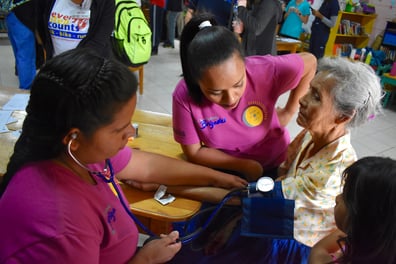
Cleveland State University, University of Maryland Baltimore,
and Smith College in San Matias, Honduras
To be a Community Health Worker, candidates must be over 18 years old, know how to read and write, and, most importantly, have a desire to attend to their community. While provided equipment to perform their duties, CHWs are volunteers. Ana Mejia is a Community Health Worker in El Ocote, Honduras. When asked why she dedicates her time to this work, she replied “I think that it is a desire to serve as a committee member and a CHW, to be able to come and help the people who need it more than us.”
 Ana Meija, CHW in El Ocote, Honduras
Ana Meija, CHW in El Ocote, Honduras
The Community Health Worker program is part of the sustainable development work of Global Brigades. CHWs help resolve health disparities by providing regular healthcare access to patients with chronic illnesses. Some chronic illnesses commonly treated by CHWs include diabetes and hypertension. CHWs are also trained in first aid, CPR, prenatal care, mental health, and palliative care, along with many other health topics through initial training and CHW Conferences.
The Community Health Worker program is also a major part of empowering community members by providing training and by putting the community’s health goals into the hands of community members. Training to become a CHW is approximately three months long, with two training sessions each week. Through this training, CHWs gain practical knowledge of healthcare techniques by licensed providers.
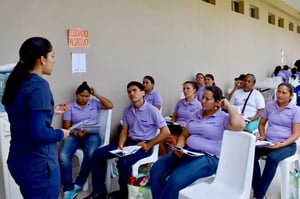
Currently, 752 active Community Health Workers are trained, receive ongoing training, and actively working in Global Brigades partner communities. This means that patients with chronic illnesses or urgent care needs have more consistent access to healthcare. CHWs are providing sustainable, year-round support to supplement work that student volunteers do during 7-12 day Medical Brigades. To learn more about the Community Health Worker program, ask about including a CHW day on your next Brigade! To find out if you have a Medical Chapter on your campus, visit www.globalbrigades.org/chapters.

